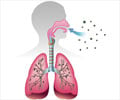According to scientists mapping of have mapped all the genes in a second type of yeast that they hope will provide new insights into basic cell biology and the development of cancer.A team of international scientists led by Nobel medicine laureate Sir Paul Nurse of the charity Cancer Research UK has sequenced the genome of fission yeast, a cousin of the brewer's yeast whose genome was mapped.
Fifty of the 4,000 genes in the fission yeast genome, which is reported in the science journal Nature, are similar to genes linked to human diseases such as cystic fibrosis, hereditary deafness, diabetes and cancer.By studying the smaller and simpler genome of fission yeast, scientists hope to discover new clues about cells and how diseases like cancer develop in humans. "Many decisions the humble yeast cell makes in cell division use genes that are closely related to genes implicated in many human cancers: this small organism could prove vital in helping to better understand and treat cancer and other disease," said Nurse.
Fission yeast, or Schizosaccharomyces pombe, is the sixth and smallest genome of organisms, including humans, whose cells contain a nucleus to be decoded. Humans have an estimated 30,000-40,000 genes while brewer's yeast, the nematode worm, fruit fly and mustard weed, which have all been mapped, have between 6,000 and 26,000 genes. Professor Gordon McVie, a co-director with Nurse of Cancer Research UK, said comparing the genetic makeup of different species would improve the understanding of the basic biology behind cancer.
"Cells are the basic blocks upon which life is built, and by understanding how they grow and develop, we will be able to develop new treatments to fight cancer; this research will help toward that goal," McVie said in a statement.
Nurse and his British colleague Tim Hunt and American Leland Hartwell, of the Fred Hutchinson Cancer Research Center in Seattle, shared the 2001 Nobel Prize for Medicine for identifying essential components that control how cells replicate.
Nurse studied fission yeast cells in his prize-winning research, which identified a gene that controls the division of cells. The findings of the three scientists have improved understanding about the way cancer arises and has prompted new approaches to tackle it.
Advertisement











